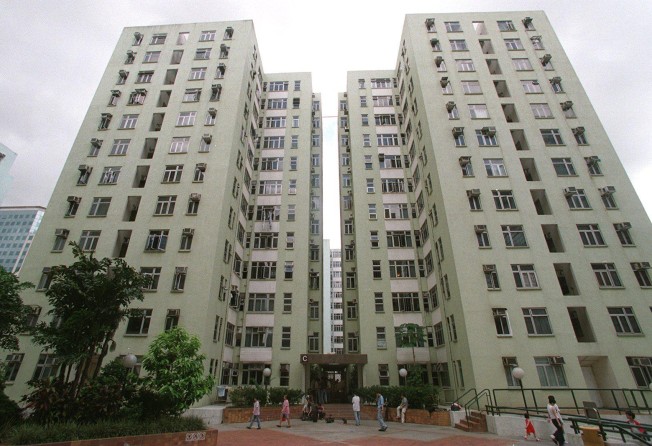Hong Kong's rising status and shrinking homes
Instead of focusing on quantitative targets, the government needs to develop long-term policies to improve the city's quality of life

Hong Kong is an affluent society by many standards, whether in terms of per capita income, total reserves, household income or number of high-net-worth individuals. This is becoming more so if one takes into account the continuous inflow of successful businesspeople having their second homes in the city, or even settling down in Hong Kong.
However, when it comes to living quality, what I have observed or heard is growing discontent over the deteriorating state of its various components. Some of my friends even suggest that over the past decade we have fallen behind many other cities at a significantly faster rate.
The quality-of-life aspects which are becoming more and more undesirable include extremely high property prices; rapidly shrinking living spaces; worsening pollution; less interesting public spaces; high work pressure and long working hours; insufficient international schools; decreasing number of old or traditional shops, replaced by more and more monotonous shopping malls. These have caused a lot of concerns among local people, mainlanders and foreigners who live or plan to live in Hong Kong.
Good quality of living can be an effective lubricant for society or even a strong incentive for the local people to contribute and commit to the future of society in positive ways. For foreigners, it gives them appealing and encouraging reasons to participate in our economy or other social aspects of society.
On the other hand, poor or deteriorating living quality will foster grievances among local people against the government and discourage foreigners to come here, or force them to leave.
Quality living, in fact, should be one of the most important goals of a society - a crucial agenda that no government should take lightly.
This simple mission is almost like a breadwinner's goal of earning money to improve the living standards of his or her own family and give them a better future. If a government just emphasises economic parameters like increasing GDP, accumulating reserves, strengthening political power, seeking higher global rankings, etc, it will lose focus on its ultimate aim of providing its people with a better quality of life.
However, when one looks at the rent and the prices of residential properties in Hong Kong, it is impossible to draw such a conclusion. Take a 35-year-old estate, Telford Garden, above the MTR station in Ngau Tau Kok. A 450 sq ft unit there is renting for around HK$16,000 a month and selling for over HK$6 million.
In fact, the phenomenon of shrinking residential unit size has continued for the past decade or so, with tiny homes becoming the new norm. My question is whether our future generations have to bear such undesirably small residential units?
It seems to us that the Hong Kong government is still looking at this problem as a pure numbers issue; how many units of housing to meet the demand shortage. In fact, the government has supplied more land for smaller units in the past few years, which might not be a bad thing at this time when property prices are so high.
However, this is merely mechanical and functional.
Being an affluent city and a global metropolitan centre, the Hong Kong government should set qualitative policy objectives to improve the quality of living for its people instead of just quantitative targets. Aspirations for a better quality of living for Hong Kong should be the first priority.
Simply put, what size housing unit will Hong Kong people accept as being reasonable? Do we want to live in 50-70-storey residential buildings? Are we satisfied with the public space around us? What kind of neighbourhood do we want? What kind of street life will make it more interesting? Will more beautiful and more green urban designs make us feel better? Do we want more pedestrianised areas with roadside cafés, food trucks or even hawkers' markets? Will these markets be appealing to the public and tourists? Do we need more international schools to cater for expatriates' needs?
Our suggestion is for our government to launch a city-wide survey to gauge opinions, ideas and suggestions from the public, including expatriates and mainlanders living here. This public survey should help set long-term policies to take our society to the next level - a more desirable and happy future.
It is high time the government changed its policymaking process from just consulting the business sectors and relevant organisations, to making their policy decisions and then going out and selling them to the public. In this increasingly open and more participatory era, the policymaking process should be based more on users' aspirations and be more inclusive, instead of the government deciding for the people what is best for them.
Ivan Ko is the chairman of China Real Estate Chamber of Commerce Hong Kong Chapter